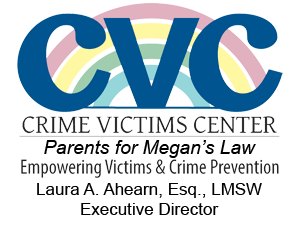Prevention - Internet Safety
PROTECTING CHILDREN AND TEENS ONLINE
Children and teens are most vulnerable to Cyber sexoffenders online. Cyber sexoffenders are Child pornographers, enticers, groomers or travelers.
Child pornography on the Internet is a huge industry. It is estimated that there are over 100,000 child pornography websites capable of bringing in more than 3 billion dollars annually. Children and teens mistakenly access pornography on the Internet through innocent searches, stealth sites and misleading URL’s, through Peer to Peer Technology, through unsolicited emails and Instant Messaging and through Enticers, Groomers and Travelers. The greatest threats to children and teens online are the Online Enticers, Groomers and Travelers. From the safety of their home these sexual predators use the Internet to anonymously and simultaneously prepare numerous children and teens for sexual victimization. These Cybersexoffenders meet their victims and develop relationships through Social Networking sites, Chat Rooms, Gaming Sites and through adults using Online Dating Services.
A survey conducted by the Crimes against Children Research Center revealed that minors are very vulnerable online:
- One in 5 receive an unwanted sexual solicitation
- One in 33 experiences an aggressive approach where an individual requested a meeting, telephoned or sent regular mail, money or gifts.
- One in 4 had unwanted exposure to explicit pictures
- Less than 10% of sexual solicitations were reported to police.
- Keep your child’s computer in a high traffic area and never allow your child to have a computer in their bedroom.
- Monitor your child’s use of the Internet and get to know the websites they access. If you don’t know how to use the computer, ask your child to show you.
- If you allow your child to use Social Networking, blogs or journal websites, be sure to check that their profiles do not include personal information such as their name, photos, sports teams or other identifying information.
- Do not allow your child to download music illegally as they risk being exposed to child and adult pornography files being attached to the music files.
- Share email accounts so you can monitor their emails.
- Set parental controls which are typically available through your Internet service providers or purchase Internet filtering software.
- Report inappropriate emails or instant messages to your internet provider or law enforcement authorities.
- Contact law enforcement authorities immediately if your child is sent sexually explicit text or child or adult pornography.
Protecting Children and Teens Who Play Video Games and Game Online
"Playing Video Games Online: The Parent-Friendly Guide" - article by ESRB president Patricia Vance on GoodHousekeeping.com which advises parents about the realities of online gameplay and the steps they can take to protect their children.
http://www.goodhousekeeping.com/family/safety/online-video-game-safety
ESRB Ratings Guide - definitions of all ESRB rating categories and content descriptors, and an illustration of where both can be found on game packaging.
http://www.esrb.org/ratings/ratings_guide.jsp
Parent Resources - links to sites that provide reviews, demos, screenshots, and other information that parents can use to make informed decisions about games for their families.
http://www.esrb.org/about/resources.jsp
Tips for Parents - guidance on choosing games and being aware of new internet capabilities, like online-enabled games and modifications.
http://www.esrb.org/about/parents_tips.jsp
Parental Controls Guide - step-by-step guide on setting up and using parental controls on all the major game systems.
